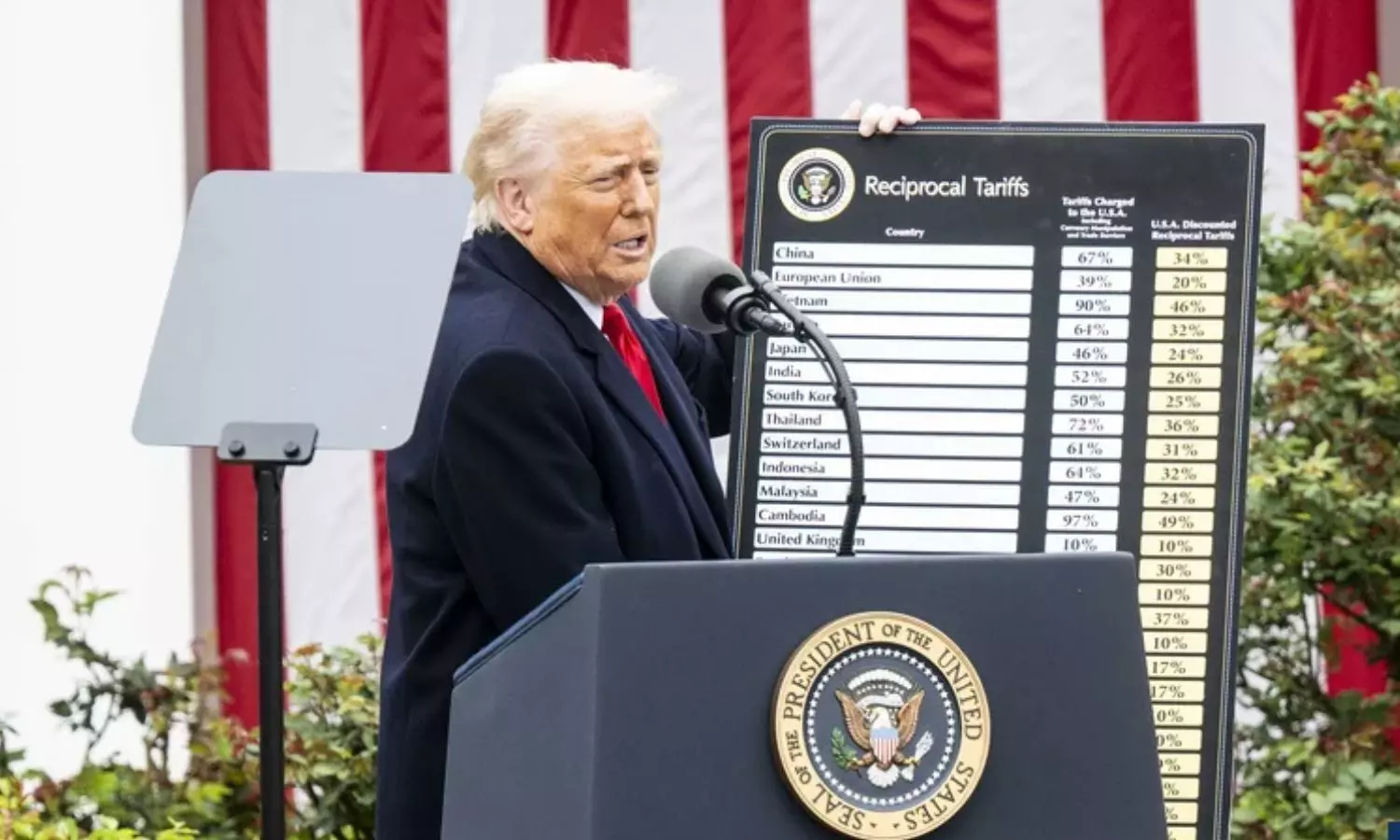Strong backlash for Trump's tariffs
Donald Trump faces strong backlash over his new tariffs, with critics warning of economic risks, trade tensions, and potential consumer price hikes.
Strong backlash for Trump's tariffs

The Yale Budget Lab estimates that all the Trump administration’s tariffs would cost the average household $3,800 in higher prices this year. Plus much higher tariffs on about 60 countries, as well as previous import taxes on steel, aluminum and cars. Inflation could top 4% this year, from 2.8% currently, while the economy may barely grow, according to estimates by Nationwide Financial.
But a key question for the Trump administration will be how Americans react to the tariffs. If prices rise noticeably and jobs are lost, voters could turn against the duties and make it harder to keep them in place for the length of time needed to encourage companies to return to the U.S.
Some exporters overseas may cut their prices to offset some of the tariffs, and U.S. retailers could eat some of the cost as well. But most economists do expect much of the tariffs to feed through to higher prices.
The tariffs will hit many Asian countries particularly hard, with duties on Vietnamese imports rising to 46% and on goods from Indonesia to 32%. Tariffs on some Chinese imports will now be as high as 79%. Those three countries are the top sources of U.S. shoe imports, with Nike making about half its shoes last year and one-third of its clothes in Vietnam.
Canadian Prime Minister Mark Carney offered one of the most frank assessments, saying it signalled an end to the tight bonds his country and the US once enjoyed.
Officials in both Canada and Mexico have decried Trump’s tariff campaign as a violation of the free-trade agreement the three countries signed in 2019, during the US president’s first term.
Most goods bought in the US, whether they’re electrical items, cars, medical devices, processed foods or makeup sets, are made up of dozens of components, sourced from multiple countries. A finished product may therefore be “tariffed” several times before it reaches the shelf, adding to the final price rise.
Switzerland’s $6.25 billion order for Lockheed Martin F-35A fighter jets is back under political fire after US President Donald Trump imposed a 39% tariff on Swiss imports.
Announced on August 1, 2025, the country’s national day, the move has rattled Bern’s diplomatic calculus and prompted calls from both left- and right-wing lawmakers to revisit the deal. The tariffs, aimed at narrowing the US trade deficit with Switzerland, have emboldened critics who once saw their call for cancellation dismissed.
The U.S. imports about 30% of its steel and more than 60% of its aluminum from other countries. These metals are essential for industries such as automobile manufacturing, construction, and aerospace. By making imported steel and aluminum more expensive, the tariffs were expected to benefit U.S. producers but also posed the risk of raising costs for industries that rely on these materials.
But the EU single market of 450 million people (the biggest single market in the world) stands very close in size at 22% of global GDP.
So, yes, the EU can bite - hard - as well as bark when it comes to retaliating against Donald Trump's tariffs.
But planes could be hit as soon as Aug. 1, when U.S. President Donald Trump’s 30 percent blanket tariff is due to enter force if there’s no deal. An EU retaliatory strike, scooped this week by POLITICO, would — if implemented — target almost €11 billion in U.S. aircraft and parts, making aviation the most affected sector by the EU’s response.

